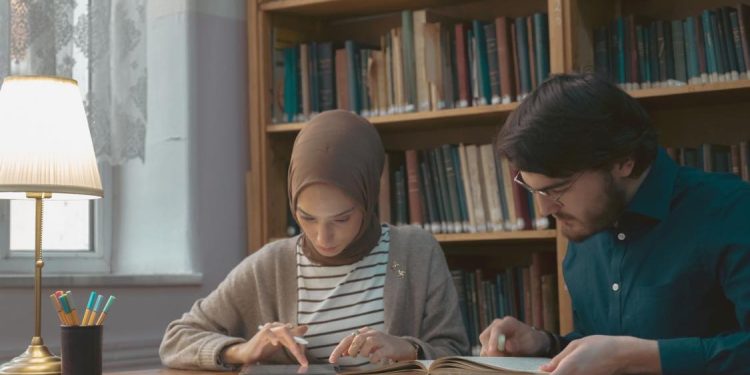Both well-known and obscure authors can have a significant impact on students’ worldviews. These literary voices encourage critical thinking by presenting new viewpoints that question established ideas. Although well-known writers have a greater impact on popular discourse due to their large readerships, niche authors frequently provide fresh perspectives that make readers think.
It is easier to write now, thanks to the advancement of AI technology. However, this is a recent development. Georgian writers of antiquity had to write everything themselves. This commitment to quality is something that must inspire every student in the country. To understand the effect Georgian authors have on the student body, we first need to understand the influence and evolution of Georgian literature.
This article will mention a lot of names unfamiliar to people who are not from Georgia, but worry not! If you’re on the verge of Googling ‘write my annotated bibliography,’ then Studybay has an annotated bibliography writing service! Using this, you can have an experienced annotated bibliography writer do the heavy lifting on your behalf. But you need to know what you’re talking about first, so let’s get started!
Outlining the Evolution of Georgian Literature
Pre-Christian works, folk epics, and important hagiographic and secular writings are all part of Georgia’s long and illustrious literary heritage, which predates the country itself. The birth of Georgian literature was a watershed moment in the history of the country’s culture and society. Approximately 11,000 copies of handwritten manuscripts, beginning with bible translations, are held in libraries in Georgia and abroad. These manuscripts date back to the fifth and eighth centuries.
“Tsamebai Tsmindisa Shushanikisi Dedoplisai,” the earliest known work of Georgian literature, dates back to the years 476-483. In the eleventh and twelfth centuries, hagiographic writings such as “Life of the St. Grigol of Khandzta” by Giorgi Merchule, as well as heroic stories and chivalric epics, were influential in the development of Georgian literature.
Some of Georgia’s first printed books date back to the 12th and 13th centuries; one such work was the 1629 Italian-Georgian dictionary. After the printing of the Gospel in 1709, Shota Rustaveli’s legendary “The Knight in the Panther’s Skin” was among the later editions.
The works of 19th-century Georgian authors like Nikoloz Baratashvili, Aleksandre Chavchavadze, and Grigol Orbeliani showcase the impact of romanticism on Georgian literature. Ilia Chavchavadze, Akaki Tsereteli, and Vazha-Pshavela were major characters in the second part of the century who brought critical realism.
Authors such as Niko Lortkifanidze, Mikheil Javakhishvili, and Konstantine Gamsakhurdia ushered in the Georgian novel’s golden period in the twentieth century. Beginning in 1916, a group of symbolists known as the “Blue Horns” were active, including the Tabidze brothers—Titsian and Galaktion—the latter being hailed as “the king of poets.”
After WWII, a slew of new writers emerged, including Guram Dochanashvili and Chabua Amirejibi. Modern Georgian literature embraced postmodernism with the likes of the internationally acclaimed authors Besik Kharanauli and Nino Kharatishvili, while the West brought magical realism. International praise for Georgian literature came from the diaspora of Georgian writers living abroad, such as Nino Kharatishvili.
The Influence of Georgian Writers
By fighting social injustice and advocating for the strengthening of democratic principles in their homeland, Georgian writers significantly impacted the nation’s conscience. Especially in the difficult years following independence, when the nation attempted to rethink its principles and reject Soviet ideological forces, this influence lingered. Young writers, especially women, continued to challenge taboos despite resistance from both citizens and government, notably during the fight against the Soviet mindset.
Even as Georgia moves further away from Soviet ideology, traces of it may be seen in politics and society. Writers from Georgia often join non-governmental organizations (NGOs), and ordinary residents take part in public demonstrations, where they express their concerns. Politicians see writers as strong opponents in public discussions. They have a global presence; for example, they demonstrated against the Russo-Georgian War at the Frankfurt Book Fair.
Writing about difficult subjects, contemporary Georgian literature mirrors the country’s transition from Soviet Georgia to a sovereign nation. Modern literature is a rare example of how national traditions and European principles have come together. Drawing on historical narratives like that of the powerful twelfth-century monarch Tamar, who held the title of Queen of Kings, and the martyrdom of Queen Shushanik, Georgian writers investigate feminist issues and gender equality.
Georgian literature explores issues of tolerance, war, and the significance of peace in a country that has a reputation for historical tolerance and a capital city where multiple religious buildings coexist. While delving into societal difficulties, writers in Georgia also manage to capture the mundane and weave love stories that triumph over adversity. Literature is a reflection of the country’s complicated past and its continuous effort to embrace diversity while honoring its cultural legacy.
What Can Students Learn from Georgian Authors?
University students can discover a world of cultural resilience, diversity, and independence through literature. Many authors, both famous and obscure, provide life lessons. From feminism and tolerance to love in hardship, the lessons are powerful. Students gain critical thinking, cultural understanding, and global responsibility from these literary voices. Some of the main points include:
- The authors of Georgia highlight the cultural resilience of their people in the face of historical adversity. By studying cultural resilience in challenging times, college students can develop an appreciation for and understanding of their own cultural identity.
- Students can gain an understanding of these values from Georgia’s history of peaceful cohabitation among various religions and powers. By delving into these subjects, Georgian authors hope to inspire their readers to value diversity and work toward mutual understanding.
- Georgian writers tackle issues of gender equality and feminism by looking to historical narratives for inspiration. College students can learn about the significance of questioning established standards and the continuous fight for gender equality.
- Writers from Georgia have contributed to the fight against social injustice. Through literature, students can develop their critical thinking skills and become activists, empowering them to make a positive impact on society.
- By studying Georgia’s history of independence from the Soviet Union, students can gain a better understanding of the importance of national identity. Reading works by Georgian authors helps one to empathize with the fight for independence and the value of family history.
- Many works of literature explore the historical circumstances behind the invasions of the country. Even if there have been wars in the past, students can learn that peace and tolerance are still important now.
- Writers from Georgia’s niche literary scene demonstrate intellectual bravery by questioning cultural norms. By doing so, they can encourage their students to think critically, speak their minds, and question established conventions.
- Writers from Georgia help keep language and tradition alive. By learning about literature’s function in preserving history, college students might be inspired to value and do their part to maintain their own language and culture.
Conclusion
University students find timeless wisdom in literature. Stories of cultural resilience, advocacy against injustice, and love in the face of hardship guide us through life’s difficulties. Literature transforms pupils, equipping them to embrace variety, challenge norms, and contribute meaningfully to a global society. This creates open-minded, culturally aware, and socially responsible people outside the classroom.
References
Georgian literature. (n.d.). Georgia Travel. https://georgia.travel/why-georgia-georgian-literature
Jobava, G., & Price, P. (2018, September 1). Exporting Georgian Literature. Words Without Borders. https://wordswithoutborders.org/read/article/2018-09/september-2018-georgia-exporting-georgian-literature-gvantsa-jobav/













